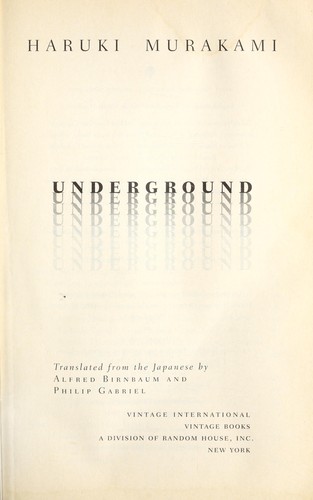Bradley JF reviewed Underground by Haruki Murakami
Interesting insights into the victims' perspectives and Aum Shinrikyo
4 stars
This book is two sets of interviews with a bit of analysis and explanation sandwiched in between, followed by a very brief essay that tries to draw conclusions based on the Aum Shinrikyo interviews.
What I appreciated most about the book was how well Murakami captured the individual perspectives of people who were involved. It makes the situation real and immediate and lets the reader get into the heads of both the victims and members of Aum Shinrikyo.
I really empathized with the feelings of the victims who spoke about how people were dropping to the ground and foaming at the mouth while people kept passing by and going on with their day as if they didn't see what was happening. Also, with the people who felt that if they didn't make it to work or weren't noticed by someone they worked with in the street, then they would not …
This book is two sets of interviews with a bit of analysis and explanation sandwiched in between, followed by a very brief essay that tries to draw conclusions based on the Aum Shinrikyo interviews.
What I appreciated most about the book was how well Murakami captured the individual perspectives of people who were involved. It makes the situation real and immediate and lets the reader get into the heads of both the victims and members of Aum Shinrikyo.
I really empathized with the feelings of the victims who spoke about how people were dropping to the ground and foaming at the mouth while people kept passing by and going on with their day as if they didn't see what was happening. Also, with the people who felt that if they didn't make it to work or weren't noticed by someone they worked with in the street, then they would not have been helped. What an amazing view into Japanese society and the Japanese psyche in the late 90s!
The Aum Shinrikyo members that were interviewed were so plain and unassuming. It seems like most of them were looking for some kind of purpose or greater meaning in life, and I can empathize with that, but they fell victim to a charismatic, manipulative fraud, and even after the fact, some of them refused to believe it.
I got the impression that some of the Aum members didn't really know what was going on, but others seemed to be telling an invented story that reduced or covered up their culpability, I suppose with the expectation that there would be no way to contradict it.
I wonder if the general persecution of former Aum members is still common in Japan today?

